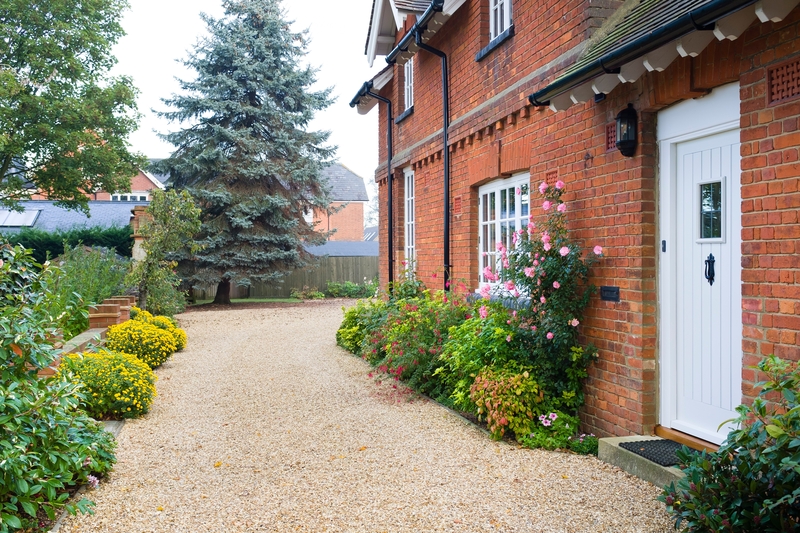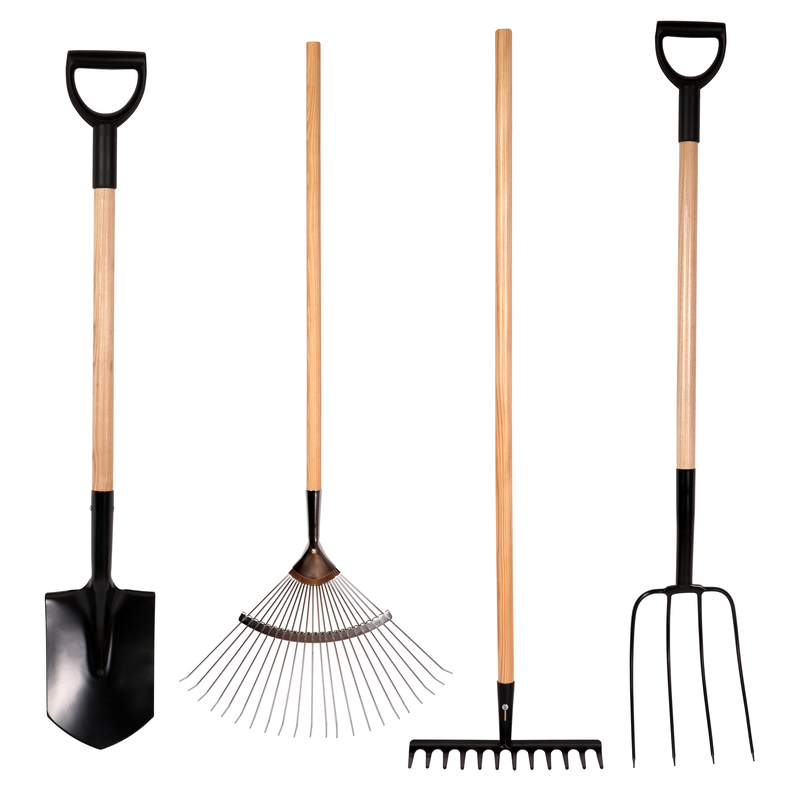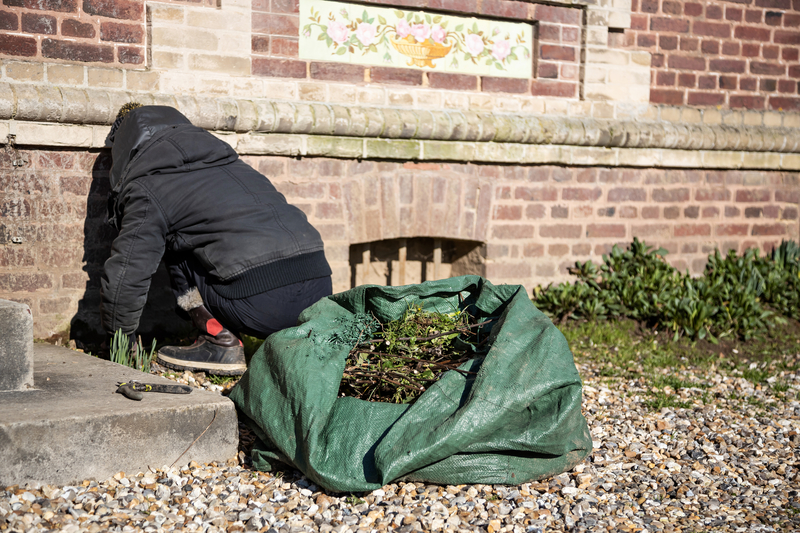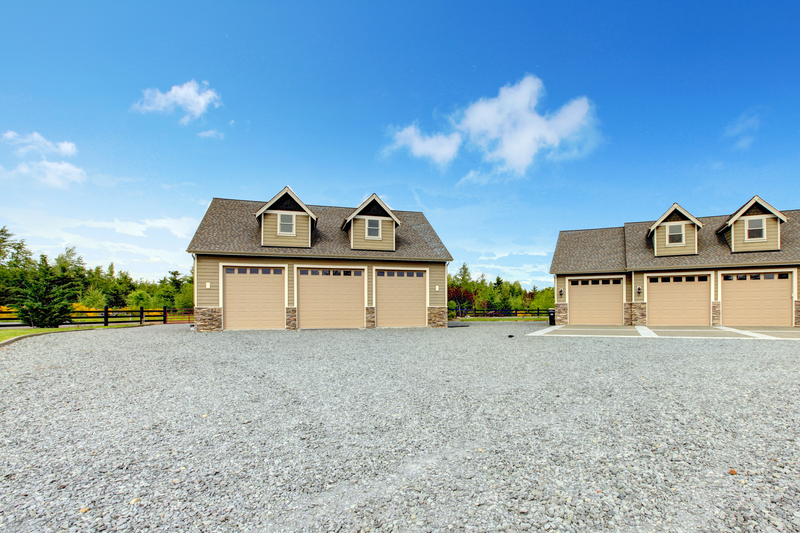
HOW TO CLEAN GRAVEL DRIVEWAY
Blog
So, you've got a beautiful gravel driveway, but let's face it, maintaining its charm can be quite the challenge. Whether it’s a new driveway or you're just looking at ways to better maintain your current driveway - we’ve got you covered.
From clearing debris and tackling stubborn stains to implementing proactive maintenance strategies, this blog will equip you with the knowledge and tools to transform your driveway into a clean and inviting entryway. Let's dive into rejuvenating your gravel driveway and unlocking its full aesthetic potential.
The Importance of Cleaning Your Gravel Driveway
A well-maintained gravel driveway enhances the visual appeal of your property and contributes to a safe and welcoming environment for both you and your visitors. Therefore, the importance of maintaining a clean gravel driveway cannot be overstated, as it directly impacts several crucial aspects of your property.
Let's take a deeper look into why keeping up with the cleaning of gravel driveways is so important.
- Enhancing Curb Appeal
A clean gravel driveway significantly enhances the overall aesthetics of your property. It serves as the first impression for visitors and passersby, contributing to the overall visual appeal of your home exterior.
- Longevity of Your Driveway
Regular maintenance of your chosen gravel plays a pivotal role in extending the lifespan of your driveway. By maintaining a stable base and addressing issues such as potholes, washouts, and rutting, you ensure that your driveway remains structurally sound and visually appealing for years.
- Safety
Moreover, a clean gravel driveway contributes to the safety of your property. Maintaining proper drainage, removing debris, and preventing weed overgrowth creates a safe environment for pedestrians and vehicles.
By understanding these key points, you can appreciate the value of keeping your gravel driveway clean and well-maintained, ensuring its functionality, aesthetic appeal, and safety for all who utilise it.

Preparing for Cleaning
Before you can start cleaning your gravel driveway, it's crucial to gather the necessary tools and materials to ensure a thorough and efficient cleaning process. Let's take a look at these tools and why they're useful.
Essential Tools and Materials
- Rake: This is for clearing debris and even outing the gravel surface.
- Power Washer: To effectively clean the gravel and remove embedded dirt and stains.
- Stiff Bristle Brush: Useful for spot cleaning and addressing tough stains.
- Cleaning Solutions include environmentally friendly detergents or specialised driveway cleaners for tackling oil spills and stains.
- Wheelbarrow: For transporting gravel if needed.
- Shovel: To address larger debris and minor gravel surface reshaping.
- Protective Gear: including gloves, safety goggles, and sturdy footwear.
Preliminary Inspection and Repairs
Conducting a preliminary driveway inspection can help identify any repairs needed while prioritising safety considerations, which is essential for a smooth and secure cleaning experience. Before commencing the cleaning process, inspect the driveway for any signs of damage, such as potholes or an uneven surface, erosion, or weed overgrowth. Addressing these issues before cleaning will ensure a more effective and long-lasting result.
Safety Considerations
Wear protective gear, including gloves, eye protection, and appropriate footwear, to prioritise safety. Additionally, be mindful of potential hazards, such as slippery surfaces during and after cleaning, especially when using water or cleaning solutions.
Equipped with these essential tools, knowledge, and safety precautions, you're well-prepared to initiate the cleaning process and restore the pristine condition of your gravel driveway.
Step-by-Step Cleaning Process
Now that you know what to look out for and what tools you need, let's read through our compact guide to help you when cleaning your driveway area.
Clearing Debris and Vegetation
To begin cleaning your gravel driveway, it's crucial to first clear away any surface debris and vegetation that may have accumulated over time. This initial step sets the foundation for a thorough cleaning and ensures that subsequent cleaning efforts are more effective.
Removing Surface Debris and Vegetation
- Inspect the Driveway: Walk along the driveway to identify any visible debris, fallen leaves, or loose gravel that needs to be cleared.
- Use a Leaf Blower or Rake: Utilise a leaf blower to efficiently remove light debris and dry leaves from the surface. Alternatively, a sturdy rake can be used to gather and remove larger debris.
- Focus on Edges and Corners: Pay particular attention to the driveway's edges and corners, where debris accumulates.
- Clear Vegetation: Remove any visible weeds or vegetation growing through the gravel, ensuring they are removed from the root to prevent regrowth.
Tips for Effective Clearing
- When using a leaf blower, start from the highest point and work your way down to prevent blowing debris back onto clean areas.
- If using a rake, opt for a sturdy one with flexible but durable tines to effectively gather debris without damaging the gravel.
You can find out how to prevent weeds and remove weed membrane in our following article.
Power Washing the Gravel Driveway
Power washing the gravel driveway offers numerous benefits, including the removal of embedded dirt, stains, and debris, ultimately restoring the driveway's appearance to its optimal condition.
Benefits of Power Washing
- Effective Cleaning: Power washing eliminates tough stains, oil spills, and deeply embedded dirt from the gravel, resulting in a noticeably cleaner surface.
- Time-Saving: The high-pressure water stream expedites the cleaning process, saving time and effort compared to manual cleaning methods.
- Enhanced Appearance: By thoroughly cleaning the gravel, power washing revitalises the colour and overall look of the driveway.
Guide to Power Washing
- Prepare the Power Washer: Connect it to a water source and electricity, ensuring it is in proper working condition.
- Adjust Pressure Settings: Set the pressure level on the power washer according to the manufacturer's guidelines and the condition of your gravel driveway.
- Start from a Distance: Begin power washing from a distance to gauge the impact of the water stream on the gravel. Gradually adjust the distance and pressure to achieve effective cleaning without displacing the gravel.
- Work in Sections: Divide the driveway into manageable sections and systematically power wash each area, overlapping slightly to ensure thorough coverage.
- Address Tough Stains: For persistent stains, hold the nozzle closer to the affected area and apply gentle, consistent pressure to lift the stain without causing damage to the gravel.
- Rinse Thoroughly: Once the entire driveway has been power washed, thoroughly rinse the gravel surface to remove any residual debris or cleaning solution.
Safety Precautions and Environmental Considerations
- Protective Gear: Wear safety goggles, waterproof footwear, and gloves to shield against the high-pressure water and potential debris dislodged during the process.
- Environmental Impact: Use eco-friendly cleaning solutions if necessary, and be mindful of any runoff to prevent environmental contamination.
- Avoid High Pressure on Fragile Areas: Exercise caution around delicate or fragile areas, such as plants or near the house, to prevent damage from the high-pressure water stream.
Removing Stains and Oil Spills
Addressing common stains and oil spills from cars and tyre treads can be annoying. However, removing oil stains on gravel driveways is crucial for maintaining its appearance and longevity. Let's take a look at some methods you can use to do this:
Stain Removal
- White Vinegar: White vinegar, when cut with water (usually 1 part vinegar to 4 parts water), can be used as a degreaser to remove oil stains. This natural and non-toxic solution is an environmentally friendly option.
- Baking Soda, Chalk, and Dish Soap: Pro-approved methods for getting oil stains out of clothes include using baking soda, chalk, dish soap, or even WD-40. These household items can also effectively tackle oil spills on gravel driveways.
- Dawn Dish Soap: Using Dawn dish soap as a pre-treatment for oil stains can be effective. Let the soap sit for 10 minutes before rinsing it out, and then proceed with a regular wash cycle.
- Petroleum-Based Hand Cleaner: Products like Goop or GoJo petroleum-based hand cleaners can be applied liberally to the stain and rest for 10 minutes before rinsing. This method may also be suitable for tackling oil spills on outdoor surfaces.
- Clear Liquid Dish Soap: For dried, set-in oil stains, use a clear liquid dish soap. Blot it into the stain and let it sit for about ten minutes before rinsing with water.
- Hydrogen Peroxide and Baking Soda: Set-in oil stains can be removed by applying hydrogen peroxide followed by baking soda. Soaking the garment or the affected gravel area with these solutions might help lift the stains effectively.
- Scraping and Blotting: When dealing with fresh oil spills, gently scrape off the excess grease with a butter knife, then blot gently with a clean, white paper towel or cloth to remove as much oil as possible.
Cautionary Advice on Chemical Usage
- Avoid Harsh Chemicals: Exercise caution when using chemicals to avoid damaging the gravel or surrounding environment. Prioritise eco-friendly and non-toxic options for cleaning oil spills and stains.
By employing these eco-friendly cleaning solutions and exercising caution with chemical usage, you can effectively address common stains and oil spills on your gravel driveway without compromising the integrity of the surface or the surrounding environment.
Maintenance Tips for a Clean Gravel Driveway
Maintaining your gravel driveway requires ongoing care to ensure its longevity and pristine appearance. By implementing regular maintenance and addressing drainage issues, you can prevent debris buildup and enhance the overall aesthetic appeal of your driveway.
Ongoing Maintenance Suggestions
- Regular Raking: Continuously rake the driveway to distribute the gravel evenly, minimise potholes, and maintain a smooth surface. Gravel bulk bags are easily available for any replacement materials needed.
- Dealing with Weeds: Routinely address any weed growth by manually removing them or utilising eco-friendly weed control methods to preserve the cleanliness of the driveway.
- Grading the Gravel: Periodically grade the gravel to correct uneven areas and promote proper water drainage to prevent pooling and erosion.
- Addressing Drainage: Install effective drainage solutions, such as French drains or gravel grids, to mitigate water accumulation and prevent potential erosion and debris buildup.
Seasonal Considerations
- Winter Maintenance: In colder months, exercise caution when clearing snow to avoid disturbing the gravel, and consider leaving a thin layer of snow to act as insulation and protect the driveway.
- Spring Cleaning: Utilise a garden hose to spray down the driveway and loosen dirt clumps, keeping dust weighed down and maintaining a clean surface.
- Yearly Inspection: Conduct an annual assessment of the driveway's condition and apply fresh gravel as needed to maintain its integrity and appearance.
Final Thoughts
Maintaining a clean gravel driveway enhances the visual appeal of your property and contributes to its longevity and functionality. By taking proactive steps to preserve your driveway's cleanliness and structural integrity, you can enjoy a range of benefits while contributing to environmental sustainability.
Regular raking, addressing weed growth, and implementing effective drainage solutions are essential to ensure a clean and well-maintained driveway.
Contact us today if you'd like to learn more about us at Henson Surfacing. We can help you achieve your dream driveway that will stand out as the focal point of your home. From Block paving, tarmac and golden gravel - we've got the perfect driveway for you.



